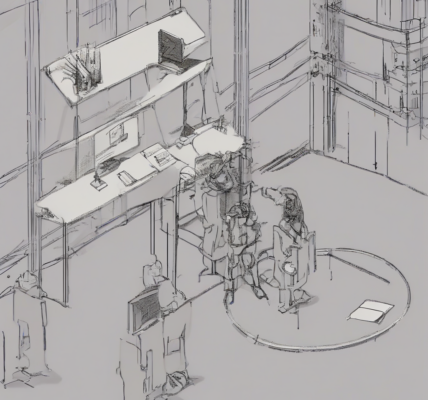Navigating the Complexities of Car Wreck Claims: A Comprehensive Guide
Being involved in a car accident is a traumatic experience, often leaving victims dealing with physical injuries, emotional distress, and the daunting task of navigating the insurance claim process. Understanding the intricacies of car wreck claims is crucial for protecting your rights and ensuring you receive fair compensation for your losses. This comprehensive guide explores the key aspects of car wreck claims, providing valuable insights and actionable steps to help you through this challenging process.
Immediate Actions After a Car Accident
- Ensure Safety: Prioritize the safety of yourself and others involved. If possible, move vehicles to a safe location away from traffic.
- Seek Medical Attention: Even if injuries seem minor, seek immediate medical attention. Document all injuries, no matter how seemingly insignificant.
- Contact Emergency Services: Call 911 to report the accident and request medical assistance if needed. A police report is crucial documentation for your claim.
- Gather Information: Collect information from all involved parties, including names, addresses, phone numbers, driver’s license numbers, insurance information, and license plate numbers.
- Document the Scene: Take photographs of the damage to vehicles, the accident scene, and any visible injuries. Note the location, weather conditions, and any contributing factors to the accident.
- Obtain Witness Information: If there are any witnesses, obtain their contact information. Their accounts can be valuable evidence in supporting your claim.
- Notify Your Insurance Company: Report the accident to your insurance company as soon as possible, providing them with all relevant details.
Understanding Your Insurance Coverage
Your insurance policy plays a crucial role in determining how your car wreck claim will be handled. Familiarize yourself with the following:
- Liability Coverage: This covers damages you cause to others. If you are at fault, your liability coverage will pay for the other person’s injuries and property damage.
- Collision Coverage: This covers damage to your vehicle regardless of fault. You can file a claim with your own insurer, even if you were at fault.
- Uninsured/Underinsured Motorist Coverage: This protects you if you’re involved in an accident with an uninsured or underinsured driver. It covers your medical bills and property damage.
- Personal Injury Protection (PIP): This covers your medical expenses and lost wages regardless of fault. It may also cover passengers in your vehicle.
- Med-Pay Coverage: This covers your medical expenses regardless of fault, but it usually has a lower coverage limit than PIP.
Dealing with Insurance Adjusters
Insurance adjusters are trained professionals who investigate claims and determine the amount of compensation to be paid. Remember:
- Don’t Admit Fault: Avoid admitting fault or making statements that could be used against you.
- Document Everything: Keep detailed records of all communication with the insurance adjuster, including emails, letters, and phone calls.
- Be Honest and Accurate: Provide accurate information about the accident and your injuries. Avoid exaggerating your claims.
- Get Legal Advice: If you’re unsure about anything, consult with a personal injury attorney. They can protect your rights and help you navigate the complex legal aspects of your claim.
- Negotiate Strategically: Insurance adjusters aim to settle claims for the lowest possible amount. Be prepared to negotiate and don’t accept the first settlement offer without careful consideration.
- Understand Your Rights: Be aware of your rights under your insurance policy and the law. Know your deadlines for filing claims and appealing decisions.
Types of Damages in Car Wreck Claims
Car wreck claims can involve various types of damages, including:
- Medical Expenses: This includes doctor’s visits, hospital stays, surgeries, medications, physical therapy, and other medical treatments.
- Lost Wages: This covers income lost due to your inability to work because of injuries sustained in the accident.
- Property Damage: This includes the cost of repairing or replacing your vehicle and other damaged property.
- Pain and Suffering: This compensates for physical pain, emotional distress, and mental anguish resulting from the accident.
- Loss of Consortium: This compensates a spouse or partner for the loss of companionship and intimacy due to the injured person’s injuries.
- Future Medical Expenses: If you’re expected to require ongoing medical care, your claim should include anticipated future costs.
- Loss of Earning Capacity: If your injuries prevent you from working at your previous capacity, you may be compensated for the difference in your earning potential.
When to Hire a Car Accident Lawyer
Consider hiring a car accident lawyer if:
- Serious Injuries: If you’ve suffered severe injuries requiring extensive medical treatment and rehabilitation.
- Disputes with Insurance Companies: If the insurance company is denying your claim or offering an unreasonably low settlement.
- Complex Legal Issues: If the accident involves multiple parties or complex legal issues such as comparative negligence.
- Need for Expert Witnesses: If your case requires expert testimony from medical professionals, accident reconstructionists, or other specialists.
- High Value Claim: If your damages are significant and you need legal representation to ensure fair compensation.
Negotiating a Settlement
Negotiating a settlement requires a strategic approach. Consider these points:
- Gather Evidence: Compile all relevant evidence, including medical records, police reports, photographs, witness statements, and repair bills.
- Calculate Damages: Accurately assess all your damages, both present and future.
- Present a Strong Case: Present a compelling case to the insurance adjuster, highlighting the strength of your evidence and the extent of your injuries and losses.
- Be Patient and Persistent: Negotiating a settlement can take time. Be prepared for a protracted process and don’t give up easily.
- Seek Independent Evaluation: Obtain an independent medical evaluation from a physician to support your claim and ensure accurate assessment of your injuries.
Filing a Lawsuit
If negotiations fail to reach a fair settlement, you may need to file a lawsuit. This involves:
- Filing a Complaint: A formal complaint outlining your claims and the damages you’ve suffered will be filed with the court.
- Discovery Process: Both sides will gather evidence through depositions, interrogatories, and requests for documents.
- Trial Preparation: If the case isn’t settled before trial, you’ll need to prepare your case and present evidence in court.
- Trial: The case will be presented to a judge or jury, who will determine liability and damages.
Protecting Your Rights
Protecting your rights after a car accident is paramount. Key steps include:
- Seek Medical Attention Promptly: Document all injuries, even if they seem minor, to prevent disputes later.
- Preserve Evidence: Carefully retain all relevant documents, including medical records, police reports, photographs, and communication with insurance companies.
- Don’t Sign Anything Without Legal Advice: Never sign a release or settlement agreement without consulting with an attorney.
- Maintain Open Communication: Keep open communication with your attorney, insurance company, and medical providers.
- Be Honest and Accurate: Always provide truthful and accurate information about the accident and your injuries. Avoid exaggerating your claims.




